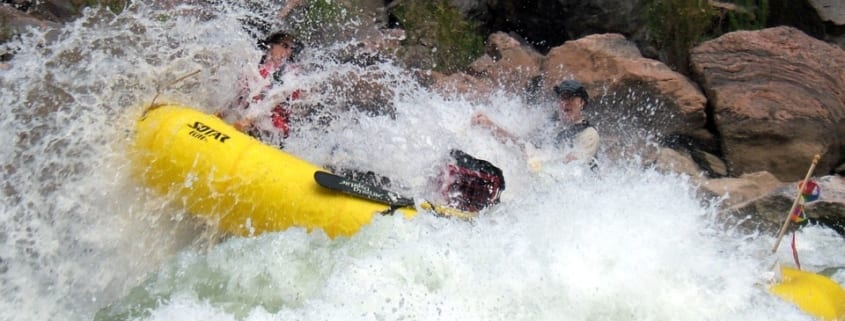Drinking and Rafting in the Grand Canyon Do Not Always Go Together
If you want to drink alcohol during your breath-taking, heart-pounding rafting excursions over the rapids of the Colorado River in the Grand Canyon, you will need to organize your trip with a commercial company or you’ll need to go on a private trip. On trips organized by the National Park Service—including those for sightseeing, education, or research—alcohol is banned.
The NPS instituted the alcohol ban in 2015 as a result of accidental deaths and cases of sexual harassment on rafting trips. Several female NPS employees had accused male employees of harassment, and those accusations were not handled properly by NPS officials, according to the Department of Interior’s Inspector General. The federal investigators found that some male employees regularly preyed on their female coworkers during alcohol-fueled trips, propositioning them for sex and retaliating when refused. Consequentially, the NPS concluded that banning alcohol would be the best way to help prevent such incidents in the future.
Alcohol has long been a common and accepted (some would say necessary) part of the exhilarating Colorado River rafting experience. Many happy rafters have celebrated their success conquering the rapids at a famous spot along the river known as Tequila Beach. Nighttime parties are frequently held at this and other sites, where young people enjoy gathering around campfires and listening to music while drinking beer, wine, tequila, or other alcoholic beverages (and perhaps partaking of additional forms of relaxation). Most groups of rafters also take the booze with them on the river.
The problem, of course, is that alcohol can make an already dangerous activity even more dangerous as it clouds your judgment, slows your reactions, and otherwise messes with your mind. That’s why the NPS does not allow the crews of the companies with rafting contracts to drink while operating boats. Crewmembers are allowed to drink when their duties for the day are completed. Passengers on most commercially operated excursions can drink during trips, though come companies do not allow it. Commercial companies risk losing their contracts if they allow drinking to get out of control and if they allow any sexual harassment to take place. Company guides sometimes need to intervene to stop drinking if passenger behavior becomes too unruly.
For individuals in private, self-guided river trips, NPS rangers typically talk to them about safety precautions before they enter the water, but the rangers do not prevent them from taking alcohol with them. People in such private trips should ideally institute some form of self-policing to try to prevent alcohol-related incidents.
The worst incidents typically involve drunken people falling out of boats into the river, injuring themselves on jagged rocks, becoming lost, and/or drowning. In early 2013, for example, a young woman who had been drinking vanished from her campsite one night. Several months later, her body was discovered floating in the river

 https://pixabay.com/en/rafting-whitewater-adventure-254659/
https://pixabay.com/en/rafting-whitewater-adventure-254659/